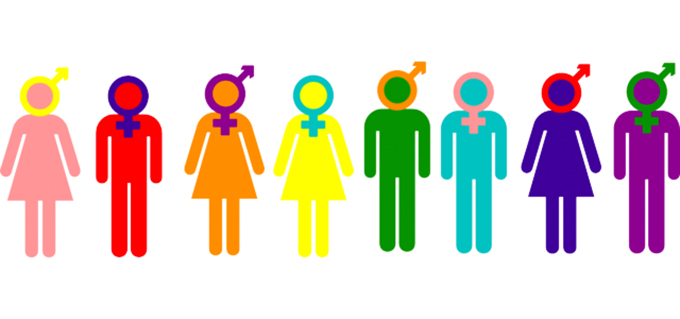
Research shows that affective-sexual and gender diversity is an aspect that is associated with greater psychosocial vulnerability. This greater vulnerability is not due to diversity, but rather to the fact that the social context continues to discriminate against people whose gender identity and expression or sexual orientation differs from the majority. The educational context is no exception.
What do we mean when we talk about affective-sexual and gender diversity? We speak of diversity to refer positively to realities, people and groups that show the necessary plurality of the human being. We use the concept of diversity to move away from a conflicting use of the concept of normality.
The definition of diversity in the affective-sexual and gender sphere is not unequivocal, but integrates a complex set of concepts that generates much confusion and includes notions that have been and continue to be used interchangeably and inappropriately.
There are different realities that include diversity of sex (due to biological conditions), gender (in terms of gender identity or expression) or sexual orientation. Definitely, a field in which people differ significantly from each other, in which the subjective experience is essential and in which there are no wrong or debatable options.
A less respectful context than we think
Despite the fact that we can intuit that in a context like ours, discrimination has no place (Spain is a pioneer in Europe in the fight for the rights of gay, lesbian, bisexual and transsexual people), the evidence shows that when the Adolescent belonging to a group of sexual minorities faces a greater risk of exclusion and violence, with the corresponding implications for their development and emotional well-being.
Respect for people with sexual and gender diversity and the fight against discrimination directed towards people with this condition is not a debatable issue.
In fact, it responds to a legal imperative that implies a type of legal and legally binding registered obligation. From the Universal Declaration of Human Rights , the Charter of Fundamental Rights of the European Union , the Spanish Constitution or laws in specific areas such as Law 26/2015 , of July 28, on the Protection of Children and Adolescents or the Law Organic Law 3/2020 , of December 29, which modifies Organic Law 2/2006, of May 3, on Education (LOMLOE), effective equality between people and respect for affective-sexual diversity is a have to.
What is being done?
Despite the widespread development of protocols for educational attention to diversity in other areas, in the case of affective-sexual and gender diversity, only a few autonomous communities have developed specific guides, programs and protocols.
When these programs are launched, the focus is directed solely at trans students and bullying due to homophobia or transphobia. The perspective is not preventive, holistic and contextual.
Our team carried out a review (the results of which will be published in the coming months) and, among the conclusions derived from it, the following stand out:
- There is no unanimity in the attention to students with gender-sex diversity in Spain.
- The existing protocols do not sufficiently meet the needs that these students may present.
- There is a clear lack of training or awareness of students, teachers and families in this matter (and when it exists, it is focused on secondary education).
- There is no common framework for training programs in affective and sexual education in the different educational stages.
What can be done
The evidence points to the need to implement affective-sexual education programs ( UNESCO, 2018 ) that promote healthy development in identity construction processes and affective relationships.
Spain has some examples of programs such as the inter-institutional Ni ogros ni princesas in Asturias, PIES in Valencia, Skolae in Navarra (awarded by UNESCO), Bicácaro in the Canary Islands or Coeduca’t , in Catalonia.
It is about working towards the achievement of the objectives of the 2030 Agenda for sustainable development, in which quality education, good health and well-being, gender equality and human rights are intrinsically interrelated.
In short, the strategy is to invest in education in general, but in affective-sexual education in particular. The result will be the development of knowledge, attitudes and skills that improve health and promote individual and community empowerment, the development of critical thinking and positive values such as respect for human rights, gender equality and diversity, which have a clear positive impact on the well-being, self-esteem and self-confidence of people.
Author Bio: Alicia Pérez de Albéniz Iturriaga is a University Professor in the area of Evolutionary and Educational Psychology, Adriana Díez Gómez del Casal is a Psychology area professor,Soul Bethlehem Pastor Ripoll is a Secondary school teacher: Educational counselor and doctoral candidate in the Department of Educational Sciences, Andrea Gutierrez Garcia is Professor Assistant Doctor. Psychologist specialized in multidisciplinary intervention in gender violence, Beatriz Lucas Molina is Professor, Department of Evolutionary and Educational Psychology and Eduardo Fonseca Pedrero is a Professor of University, Psychology all at the University of La Rioja
